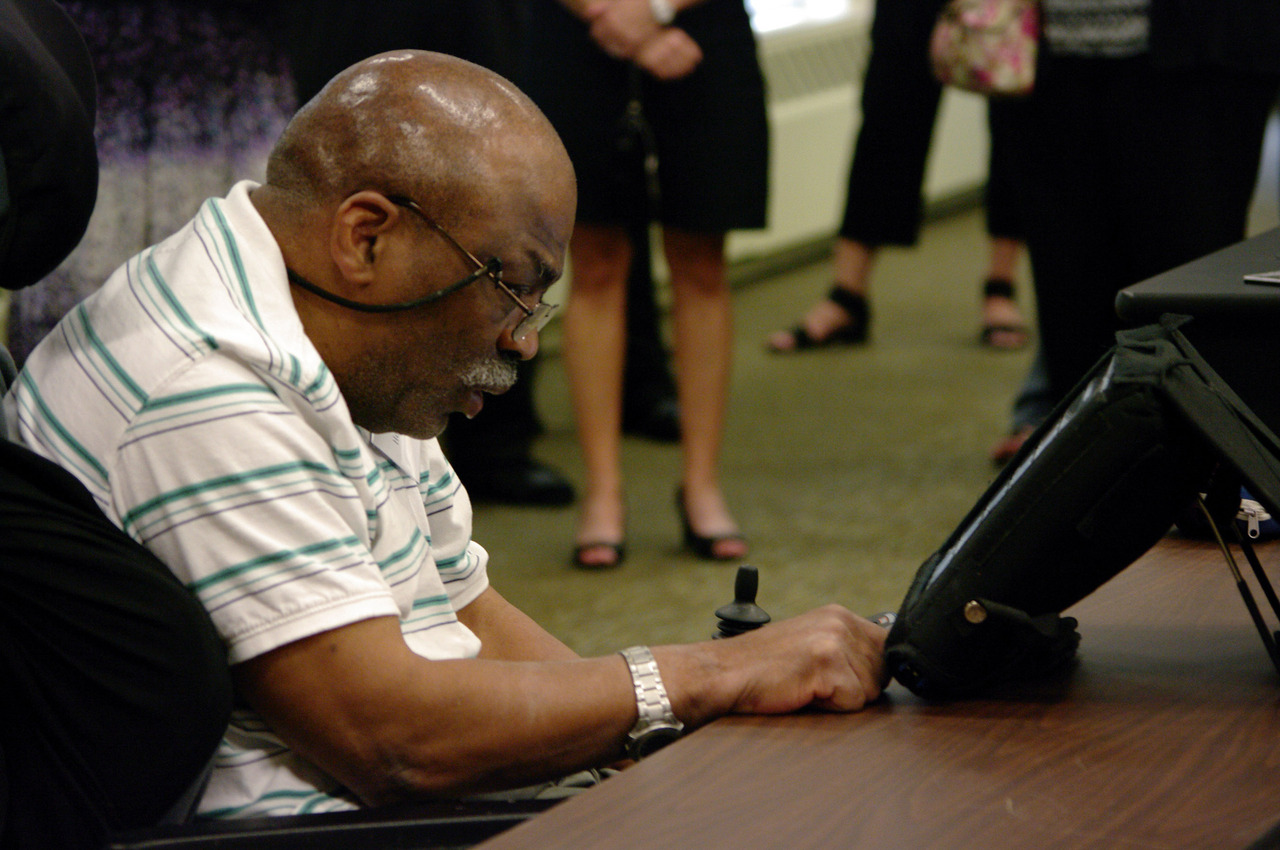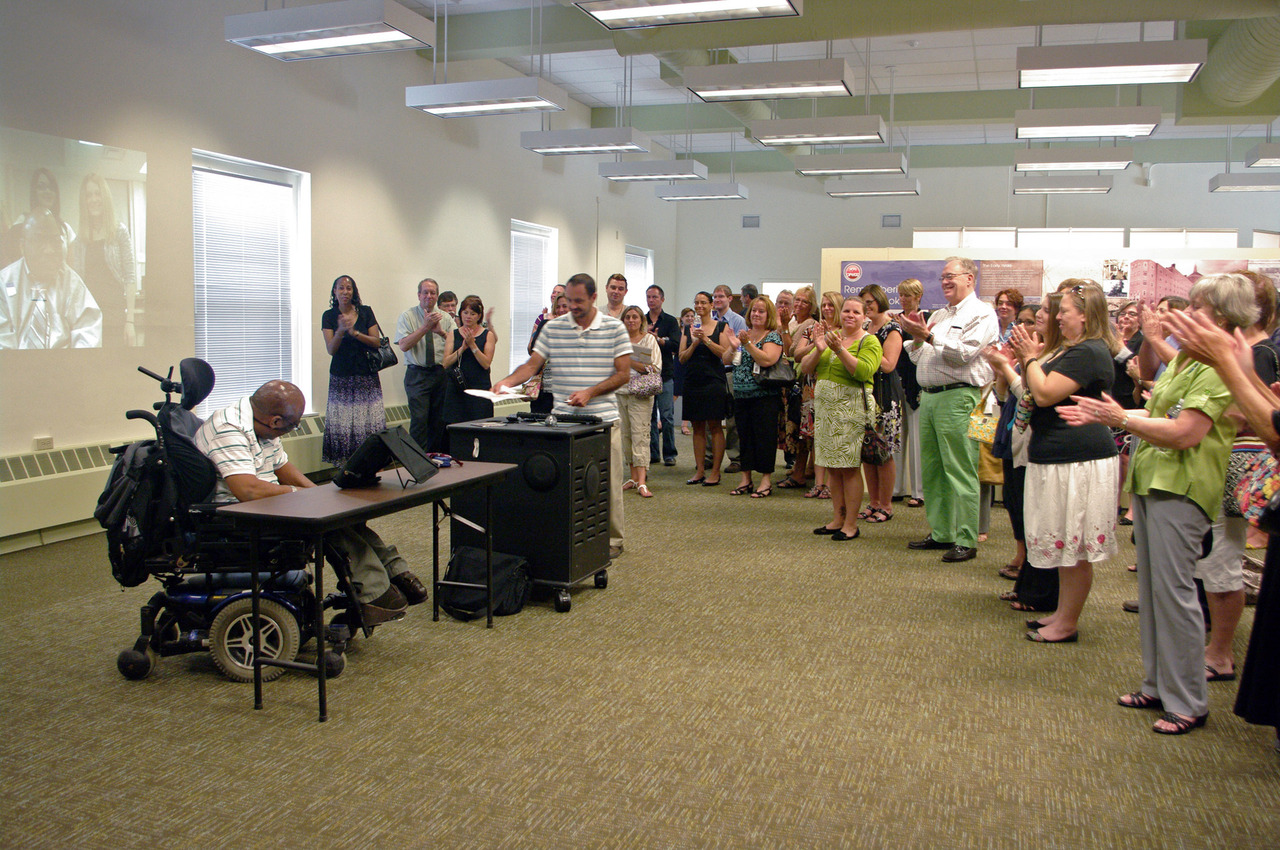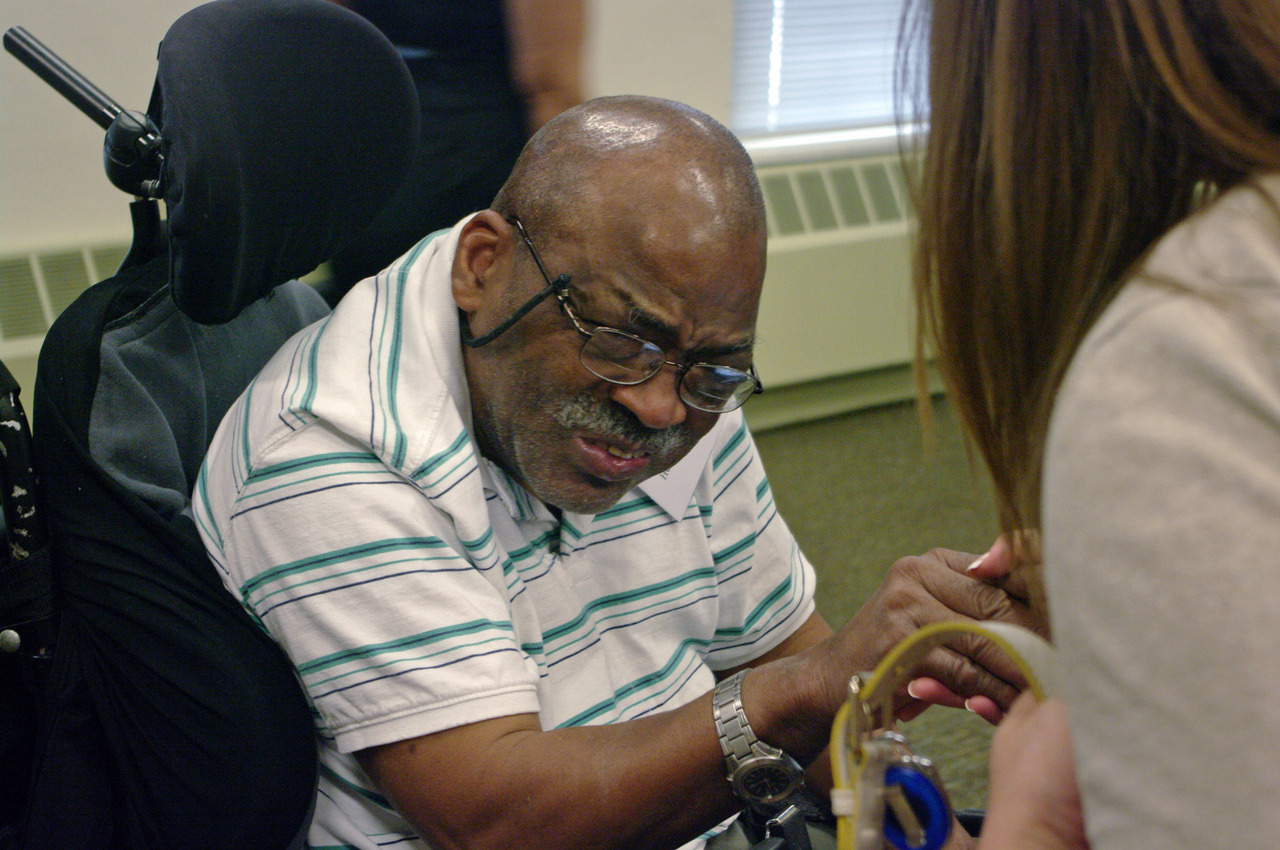
Henry Wesley
Posted September 21, 2012 at 7:00 pm
By Jenna DelSignore, ContributorThe Museum of disABILITY History (Buffalo, NY) had the honor of hosting the self-advocacy speaker and former Willowbrook resident Henry Wesley on August 9, 2012. Henry gave his famous presentation on the journey of his life from his time and survival at Willowbrook, through his achievements and adventures of the current time.

Henry gave his presentation with his Dynavox speaking device which was accompanied by a picture slide show presentation that he controlled. He began with his time spent at Willowbrook, a whole 23 years being one of thousands of children living in the misery that was this institution. Henry began his time at Willowbrook in 1949 when he was abandoned at the door of the institution at the age of four. He described his life in exile, being left in his crib the majority of the time and not being able to communicate or move. While at Willowbrook, Henry was abused, put in strait-jackets, isolated and was a victim of unethical medical practices. Henry described that most children were not as lucky as he was, dying of unnatural deaths and their bodies being distastefully left throughout the hallways. Many residents would wander around naked and confused, filthy and malnourished.
The institution was designed to house only 4,000 residents, but by the 1960s it had over 6,000. Henry began to attend school at Willowbrook, but with little success due to the fact he had poor vision and the institution did not provide him with glasses. This was an institution where children could not grow or learn despite their best efforts. Willowbrook was finally exposed for its wretchedness and in 1987, it was shut down by the state. Henry packed his bags and moved into another institution where he stayed for 15 years. After this, he finally moved into The Resource Center (TRC) where he would meet his wife Jean, and begin his independent life and freedom in the community.

With the help of TRC, Henry went to school, got a job and also volunteered in his local community. He finally got to make his own decisions and be involved in activities that were enjoyable to him. This was a life altering move, to say the least. Although Henry has improved conditions, he sees that people with disabilities are still not fully integrated into the community. He still had to fight for the right to marry his wife Jean and faces adversity when out in the community. This is what led Henry to become a motivational speaker on self-advocacy.
Henry is deeply involved in self-advocacy and is aware on how important it is to share his story; not only to educate but to inspire. Just because he does not have the ability talk, does not mean he cannot hear and understand you. He tells you that if you talk to him, he will find a way to respond. It may take a little time, but he can, and will respond. Henry emphasizes that nothing like Willowbrook should ever happen again, and to accept people with disabilities the way they are. Due to his moving presentations and passion for self-advocacy, Henry has received many awards such as the Lifetime Achievement Award, the New York State Developmental Disabilities Planning Council’s exceptional Personal Growth Award, the New York State Senate Achievers Award, and Jean and himself received the Lifetime Achievement Award at The Resource Center’s Disability Awareness Awards Celebration. Henry also meets monthly with The Resource Center’s new employees to tell his story, as well as educate them on the way people with disabilities should be treated. He is a member of the TRC’s delegation to the AmeriCorps Self-Advocacy project and a member of the Self-Advocacy Association of New York State.
Henry finished his presentation with some touching words and then welcomed anybody to come forward to ask questions. He only requested not to ask open ended questions, due to the time it takes to respond. So to accommodate, he passed out cards and his e-mail address and encouraged everyone to e-mail him with any further questions they had. Henry is a human timeline of the progress people with disabilities have made over time. From the worst, to what is now the best, and into the future where better is to come. There was not one soul who left his presentation uninspired. He gave one of those presentations that are hard to forget. As hard as I tried, there are not enough words and compliments I could have given that would have given his presentation enough justice. To learn more, read his blog and ask him questions at his personal website at http://trchenry.wordpress.com/

Sources:
http://trchenry.wordpress.com/
http://www.resourcecenter.org/2012-articles/061512-wesley.html
http://www.aspirewny.org/news/article/current/2011/06/16/100004/henry-wesley-shares-life-story
Comments
Kathy McIntire
Posted February 27, 2016 at 12:00 am

Working with people who have cognitive function disabilities is my passion. I volunteer as an Art Therapy instructor for a small non profit in South Carolina. I plan to share your story with my students to emphasise how we can ALL overcome & ACHIEVE anything we desire.
Thank you for bring such a wonderful inspiration & human being.
Peace to you--
Kathy